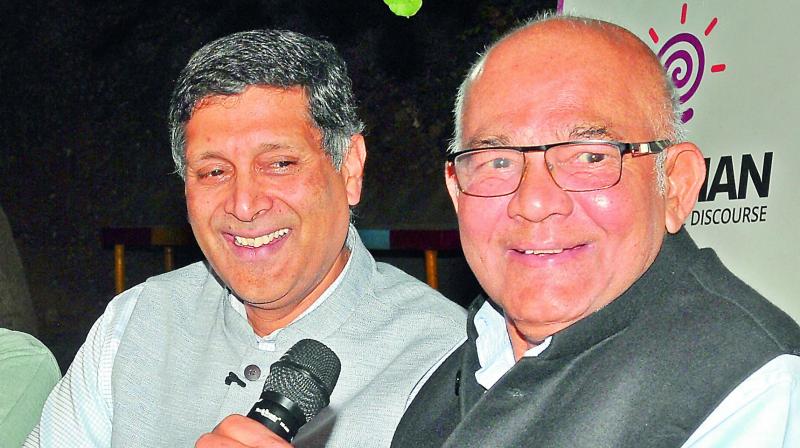Hyderabad: Note ban hits stash holders

Hyderabad: Because 99 per cent of the cash has returned to the RBI after demonetisation, it doesn’t mean there was no cost imposed on owners of bad cash, said former chief economic adviser Dr Arvind Subramanian and pointed to the need to have an overall assessment.
He said that there was an impact on ‘bad cash’ owners. Dr Subramanian was speaking about his new book, ‘Of Counsel: The Challenges of the Modi-Jaitley Economy’ and his journey as CEA between 2014 and 18, at a meeting organised by Manthan. Dr Subramaniam said his appointment was broadly publicised even before he got any information from the government. “In terms of policy, the high point as CEA was being part of the GST (implementation). Despite the implementation challenges, it has arguably done well. It is successful because of technology design and co-operative federalism,” he said.
Passing of the Indian Bankruptcy Code was yet another highpoint in his role as CEA. Speaking about growth of economy, Dr Subramanian said that even though India's growth was declining, the country continued to remain a dynamic market economy. “The financial system is not in great shape and GST needs to improve,” he said.
Comparing the work environment at IMF, his former employer, and the government, he said, “The IMF has high intellectual atmosphere with rich interactions, but in terms of freedom to say things, government was open. Raghuram Rajan and I wrote critiquing foreign aid, and what we faced was much more severe than what I faced in India,” he said.
“I was prepared to negotiate with the Indian bureaucracy and it is much easier to navigate which surprised me,” he said.
About his book, he said that the introduction of GST was something he liked writing the most as it was mix of memoir, pshycology and making it readable.

